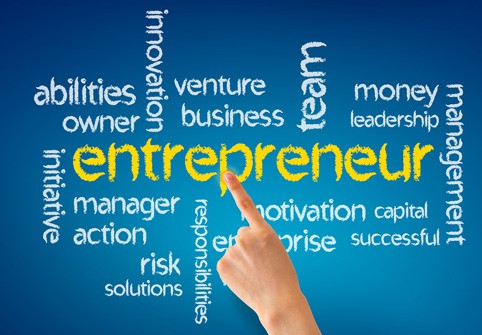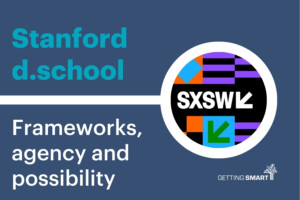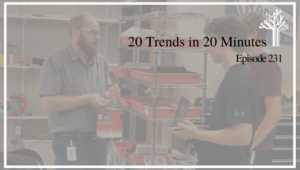Forming an Entrepreneurial Mindset in K-12 Students

By: Ryan S. Olson
Travel and telecommunications are dramatically quickening the pace of change. Ram Charan says economic opportunities have “tilted” the globe from north to south at the 31st parallel. Perhaps the most important question of our time is, Are we forming young people who will thrive in these times? Parents must address this. So must educators, who significantly form children. But educators fail students if they foster only technical skills and textbook knowledge (and some school systems even fall short at providing these). While essential, skills and knowledge are insufficient for an increasingly networked, competitive world.
In short, the rising generation needs an entrepreneurial mindset.
We must pivot toward a future orientation, teaching students to ask questions, listen carefully, critically analyze knowledge from many sources, and take action based on prescient insights. Students must understand that a narrow focus on technical mastery alone will not make them competitive in this economy. Graduates will need to synthesize information from history, economics, language, anthropology, political science, literature, and their own observations in order to understand and analyze opportunity spaces. The old word is wisdom.
Wisely integrating disparate knowledge is the heart of creativity. Creativity happens in context as the result of disciplined work toward a worthy end. It occurs within a trajectory of concepts, images, or products. Without inhabiting a tradition, one’s ideas and experience are irrelevant and incoherent, disconnected from reality and hope. Those traditions—technical, aesthetic, religious, or humanistic—must be learned through disciplined attention to past masters. Imagine Apple without Steve Jobs’ calligraphy. Einstein without Newtonian physics. Jesus of Nazareth without the Hebrew Bible. Dante without Ovid or Virgil. Rembrandt without Caravaggio. Tolkien’s “Lord of the Rings” without Old Norse and Anglo-Saxon mythology.
This mindset isn’t employed only by traditional entrepreneurs who create institutions. Most graduates don’t lead, but are employed by small, medium, or large companies. According to Jim Clifton, Gallup’s CEO, we need intrapreneurs working inside companies as “the brains and energy behind creating customers.”
An entrepreneurial mindset is useful for anyone, for all of life. This mindset exercises a relentless curiosity about the surrounding world and draws from a diverse set of wells to find solutions to problems. An entrepreneurially minded person leans into change and complexity, finds insights and opportunities, and continuously seeks a broad understanding of the contemporary world.
Some students may be more entrepreneurially minded by nature. But aspects of the discipline can be learned. Here are a few suggestions for you and your students.
- Zoom out to context and experiment with connections. What relevant events, trends, narratives, or statistics can you find in history? Economics? Law? Material culture? Arts? Demographics? The entrepreneurially minded see and implement these connections.
- Memorize your field’s fundamentals. That’s right: rote learning. Ephrem the Syrian said, “The eye as it read transported the mind; in return, the mind too gave the eye rest from its reading, for when the book had been read the eye had rest, but the mind was engaged.” How can you imagine new ideas if you don’t know the basics cold?
- Become an “anthropologist”: What problems and challenges exist around you? Observe in novels as much as news sites.
- Practice describing your interests and observations so that unfamiliar people can engage and help you sharpen them.
- Create projects in different contexts: Build something to apply your ideas at home, work, and in your neighborhood.
- Flex your mind by asking what you’re missing today.
Educators earnestly desire to serve their students. Fostering an entrepreneurial mindset will help young people thrive in a rapidly changing world.
For more, see Building an Entrepreneurial Mindset, feature on the KEEN network, a group of engineering schools sponsored by the Kern Foundation. Also see Innovation Mindset.
Dr. Ryan S. Olson is team leader for K12 education at The Kern Family Foundation and is a CHS Fellow at Harvard University.







0 Comments
Leave a Comment
Your email address will not be published. All fields are required.